Want to hear more from the actors and creators of your favorite shows and films? Subscribe to The Cinema Spot on YouTube for all of our upcoming interviews!
Managing editor & film and television critic with a Bachelor's of Arts in English Literature with a Writing Minor from the University of Guam. Currently in graduate school completing a Master's in English Literature.
Director Spike Lee has truly a genius Black filmmaker, and if you have not seen his other works in his filmography, be sure to check them out. Nearly two years after the release of his award-winning film BlacKkKlansman, Lee has invested his energy into this radical war drama, Da 5 Bloods.
This article will tackle the plot and all of its themes that are presented in this 2 hour and 35-minute film, analyzing its relevance in history — of American history, of global history, and of movie-making history. Beware for all the spoilers ahead!
Spike Lee not only directs this film but also co-writes the screenplay with Danny Bilson, Paul De Meo, and Kevin Willmont. The plot follows four Vietnam War veterans Paul (Delroy Lindo), Otis (Clarke Peters), Eddie (Norm Lewis), and Melvin (Isiah Whitlock Jr.) who reunite in Vietnam to excavate and retrieve the remains of their battles: a chest of gold bars, their abandoned demons, and the body their beloved friend, fellow “Blood” brother, and squad leader “Stormin’ Norman” (Chadwick Boseman). The surviving Bloods are assisted by Paul’s estranged son David (Jonathan Majors) and other allies: translator guide Vinh (Johnny Trí Nguyễn) and Love Against Mines and Bombs (LAMB) members Hedy Bouvier (Mélanie Thierry), Simon (Paul Walter Hauser), and Seppo (Jasper Pääkkönen). The Bloods encounter enemies and lose parts of themselves — spiritually, mentally, and literally physically — during their journey.
Lee’s direction is impossible to avoid. Like his previous works Malcolm X and BlacKkKlansman, the filmmaker puts the viewer into the mood of the film, where here he displays via montage sequence all the historic events that happened around the time of Vietnam War. In the order that they appear, here are moments he highlights via archived clips:
- Muhammad Ali;
- Neil Armstrong and his space mission;
- Malcolm X speaking;
- Black athletes Tommie Smith and John Carlos during the Mexico City Olympics on October 16th, 1968;
- Harlem on August 1st, 1970;
- Kwame Ture in April 5th, 1968;
- Agent Orange being sprayed down over the course of a decade from 1961 to 1971;
- Angela Davis in Oakland, California in November 1969;
- Kent State University students William Schroder, Allison Krause, Jeffrey Miller, and Sandra Lee Scheuer having been murdered by the Ohio National Guard on May 4th, 1970;
- Over one week later, Jackson State University (formerly College) students Phillip Lafayette Gibbs and James Earl Green having been murdered by Jackson and Mississippi State Police on May 15th, 1970;
- Vietnam;
- The 1968 Democratic National Convention, and then-President Lyndon B. Johnson’s announcement of not seeking re-election;
- The napalm bombing of children;
- Nixon’s resignation; and
- A boat of Vietnamese refugees being sent to America from 1975-95.
These events are shown as the late Marvin Gaye’s “Inner City Blues (Make Me Wanna Holler)” plays in the background.
Music is a crucial aspect here, and much of Gaye’s songs are used throughout this film — “Got to Give It Up,” “What’s Happening Brother,” “Wholy Holy,” “Flying High (In the Friendly Sky),” “What’s Going On,” and “God is Love.” Other songs used in this soundtrack include “Ride of the Valkyries” and the Chamber Brothers’ “Time Had Come Today.” The script also includes an Aretha Franklin lyric, “You better think.”
Newton Thomas Sigel excels on the cinematographic end, having worked on such action drama films including The Usual Suspects, the X-Men films, and Drive. At first, the viewer can notice the smooth transitions from present to past and back and forth. In one example, Paul’s son David’s hand is held briefly by Eddie at the back of their boat, and the scene transitions to the past where the Bloods are cocking their guns and traversing the Vietnamese greenery. This signifies the war-and-peace theme explored throughout the film. Lastly, the movie’s end-credits sequence has some lovely shots of Vietnam’s landscapes.
Plot Analysis
The film’s narrative is akin to Stephen King’s It and Stand by Me. It examines a variety of themes including Biblical references, war and peace, post-traumatic stress, racism, and history.
Biblical References
The plot entails the Bloods’ journey from their cruel ruler (Uncle Sam, the personification of the American government and military), where they try to find closure at the end but face temptations of a false god (gold) on their way to meet their savior leader (Stormin’ Norman), who is representative of Jesus Christ. Otis’s former flame Tiên (Lê Y Lan) says, “Gold does strange things to people, even old friends.” The sin Greed divides the group at one point, and Paul decides to leave them with his share of the gold on his back. The Bloods’ journey is akin to that of Moses in the Old Testament. Indeed, when David steps on a landmine, his father, the other Bloods, and the LAMB members successfully save his life by comparing his flight from death to that of Olympic athlete Edwin Moses from Morehouse College Class of ’78, who won two gold medals by doing 400-meter hurdles. Like Moses from the Bible, the Bloods try to find themselves as freedmen from slavery that is the American army, and they engage in a literal tug of war between life and death.
The names of the characters are also Biblical:
- David faces multiple Goliaths throughout the film: his father Paul, Desroche (Jean Reno), and the journey itself. Ultimately, he saves his godfather Otis from being killed by Desroche, whom David shoots through the head. In the Bible, David hurls a stone at Goliath’s head.
- Paul is representative of the conflicted disciple Saul/Paul who oppressed his savior Jesus, or in this case, Norman. Paul is the only supporter of the current occupant of the Oval Office in North America, who is referred to at one point by one of the other Bloods as “President Fake Bone Spurs.” Paul departs from the group with a backpack containing his share of gold bars but loses this to an apparent Norman’s ghost while he loses his mind.
- Bouvier’s organization LAMB accompanies the Bloods, who act as the Shepherds to Norman’s Jesus. In fact, Paul also compares himself to a sheep when he cites a passage from Psalm 23:
-
”The Lord is my Shepherd. I shall not want. He maketh me lie down in green pastures. He leadeth me beside the still waters. He restoreth my soul. He leadeth me in the paths of righteousness for His name’s sake. Yeah, though I walk through the valley of the shadow of death, I will fear no evil, for Thou art with me. Thy rod and Thy staff, they comfort me.”
-
The Bloods follow Norman religiously as if he were Jesus, and he teaches them to save themselves along with those of their race (African Americans), who were stolen from their homeland and made slaves since 1619. He tells them, “The USA owe[s] us. We built this bitch! We repossess the gold.” Paul, Desroche, and the Vietnamese soldiers ultimately fail to gain any gold as a consequence of their greed. As a drunken Melvin says earlier in the film, “A tomb is sacred, not to be looted by rogues and vandals.” Norman also tells the group to use the gold for Black reparation instead of bringing it back to the US government, who believe that (according to Norman) “war is about money, money is about war.” The US military has always used and spent money on (but not limited to) Black people as cannon fodder, fighting another country’s battles. This has always been the case with indigenous peoples, that is, utilizing colored (non-white) individuals as property. As Laurence Fishburne’s character Jason “Furious” Styles Jr. states in the late John Singleton’s film Boyz n the Hood: “Black man ain’t got no place in the [white man’s] army.”
War and Peace
Norman also teaches the Bloods about war and peace. The team learns about Martin Luther King Jr.’s assassination at the hands of a white man, an event which is met with anger from the Black community in over 122 cities in the US. Vietnamese radio host Hanoi Hannah (Veronica Ngo) asks the American soldiers, “Is it fair to serve more than the white Americans that sent you here? Nothing is more confus[ing] than to be ordered into a war to die or to be maimed for life without the faintest idea of what’s going on.” As a response to what the white man in America had done to their fellow Black people while they were gone, Norman tells the Bloods, “Won’t let nobody use our rage against us. We control our rage.” He teaches them peace instead of war; that their brotherhood should not brotherhood for “this shit [gold].”
Upon meeting, Bouvier and David discuss the violence taking place in their respective countries. The former tells Paul’s son, “It’s strange how war never ends for those involved…and still harvesting death all these years later.” They have drinks while talking about their professions. As founder and director of LAMB, Bouvier’s role is to “locate old landmines and detonate bombs;” David’s profession is a schoolteacher, which he says might not be as dangerous, although he adds that he has to be wary of school shootings. LAMB member Seppo accuses David and his group of American war veterans of being “incredibly uninformed” and being tied to something as mindless as “watching reality TV or electing a reality TV clown for a president.” Paul’s son retorts, “Black folks … plead innocent to all charges, claims, accusations, allegations, and associations to the Klansman in the Oval Office.”
Post-Traumatic Stress
Paul’s PTSD triggered during the Vietnam War is a major element in this film integral to its plot. After the Bloods depart onto the water, David tells Eddie that his father “needs counseling; [Paul] talks to himself [and] calls [Norman’s] name in his sleep.” Paul harbors the truth about Stormin’ Norman’s murder, which is later revealed to be his own doing — an enemy soldier had snuck up on Paul and Norman, and the former recklessly did a sweep of gunfire, shooting both the soldier and Norman. At the floating market, Paul is offered a chicken by a local who persists and irritates him, starting a kerfuffle. Otis suggests that he go to therapy because “we’re all broken,” but Paul refuses.
Paul’s trauma with the loss of Norman along with that of his wife — after delivering their son David — caused him to give up hope. He explains his reasons for succumbing to the white man’s power, “When you’ve been cheated in life as much as I have, you learn to spot the sign of all them dirty rat bastards out there.” Later, he takes Otis’s gun — given to him by Tiên — and uses it to protect the group and himself from Bouvier and her LAMB colleagues. As a result of Paul escalating conflicts, Norman is killed by an ally, Eddie steps onto a landmine — causing him to lose both arms and lower half of his body, then bleeding out before dying — and Seppo dying from a similar circumstance.
His mental state reaches a point where he walks alone in the forest and refuses to be killed, even fighting off a snake. Ultimately, Vietnamese soldiers catch up and put bullets through his body, but not before he gets forgiveness and closure from Norman’s ghost. As Vinh tells Otis, “After you’ve been in a war, you understand it really never ends. Whether it’s in your mind or in reality. There are just degrees.”
Racism
Racism is heavily incorporated into the film and mostly revolving around Paul, the only Trump supporter of the Bloods — proven by the red “Make America Great Again” hat that he puts on during the journey. During the floating market scene, he calls a man — who sells him a chicken — a racial slur. Vietnam official Quân (Nguyễn Ngọc Lâm) calls him a “Black Uncle Sam,” giving rise to heated conflict.
Other scenes in the film show that the other Bloods are victim to racism. A one-legged Vietnamese boy begging for money scares the Bloods with firecrackers. Otis discovers that he and Tiên conceived a daughter together but she was rendered a bastard because her father was a Black man. The Vietnamese were taught a racial slur in their tongue by the white GI. Also, Desroche claims that “we have all sacrificed. [The Bloods’] blackness does not make their sacrifice any greater;” Bouvier explains to Otis that Desroche believes “green is more important than black.”
Black History
Da 5 Bloods is inclusive of Black history, spewing facts aside from what is mentioned in the introductory montage. The film’s writing brings up Milton L. Olive III, a “real hero [who] jumped on [a] grenade and saved his Bloods’ lives;” Crispus Attucks, who was first to be killed in the Boston Massacre on March 5th, 1770 during the American Revolution; and, as per Quân, the Mỹ Lai Massacre of innocent children and babies that was led by Lieutenant William Calley Jr.
Ultimately, one of the Bloods loses their life trying to save the others from a live grenade thrown by Desroche — a feat foreshadowed in a line about Olive.
Bouvier tells David she got her first name from actress Hedy Lamarr, and he responds he got his name from singer David Ruffin of the Temptations. Bouvier says her family gained their wealth status from running rubber and rice plantations, and she had to leave for a better cause because of this. Paul accuses the French of not doing their part during WWII, to which Desroche responds is “ignorant [and] one-sided” and reminds Paul that “Uncle Sam did no better than France in Vietnam.” Vinh tells the Bloods that “the American war turned Vietnamese family against Vietnamese family,” then later adds that his father fought in Operation Junction City in 1967.
The film also makes popular culture references to Black films and war depictions in the media. When they first meet, the Bloods mention Mookie — Spike Lee’s character from Do the Right Thing and Red Hook Summer. Apocalypse Now, “fugazi Rambo movies” and Walker, Texas Ranger are also namedropped at the beginning of the film.
The film ends with a passage from Martin Luther King Jr.’s speech on April 4th, 1967 — one exact year before his assassination — at Riverside Church in New York:
To save the soul of America. We were convinced that we could not limit our vision to certain rights for black people, but instead affirmed the combination that America would never be free or saved from itself until the descendants of its slaves were loosed completely from the shackles they still wear. In a way, we were agreeing with Langston Hughes, that black bard of Harlem, who had written earlier, “O, yes I say it plain America never was America to me and yet I swear this oath America will be!”
Peters’s Otis and Lindo’s Paul stand out in the film as their focal characters, followed by Majors as David, Nguyễn as Vinh, and Thierry as Bouvier. Boseman stars as the Bloods’ deceased leader and performs well in the screentime he is given — being compared to Martin Luther King Jr. and Malcolm X, and is said to be nothing like an Uncle Tom — although much of the film is dedicated to present-day scenes. Otis, Paul, and David get the most character development with their respective subplots. David and Bouvier have lovely chemistry in their potentially romantic dynamic. Paul almost intimidates any character — himself included — with his MAGA beliefs, while Otis is a reasonably righteous character to those around him.
The pacing of the Da 5 Bloods is gradual at first but begins to pick up once the Bloods arrive at Norman’s and the gold bars’ burial site. The film does provide some levity, such as when the Bloods are rushing with excavating the chest of gold bars. Norman’s body is brought back to the US, and Otis is united with his daughter Michon (Sandy Hương Phạm). The film’s ending gives hope that the oppressed will get reparations. The survivors of the film are each given $2- or 3-million for their shares of the gold bars: Melvin’s wife Cissy Cooper is given a check of $2mil; Eddie donates $2mil to the Black Lives Matter movement; Bouvier and Simon use $3mil on behalf of their organization and Seppo’s death.
Indeed, Spike Lee’s newest joint Da 5 Bloods is “a stone-cold trip.” The film is racially diverse with its cast of Black male characters, Vietnamese characters, and French characters. There are some moments of darkness and poignance, but they tend to be balanced with some light comedy and high-spirits. It teaches us that, as Paul says in a letter to his son, “Nobody can turn back the hands of time.” That is, we cannot fix the past, however, we can make a better change in the future. The film also has satisfying eye-candy cinematography and even sweeter music from Marvin Gaye, telling the viewer that “war is hell [and] is not the answer.” Its themes on PTSD, racism, and Black history from the lens of Black human beings gives much to ruminate. These three are applied to some of Paul’s final words to David, “I came back [to Vietnam] to confront the demons that haunted me and tortured you.”
This film is praiseworthy in its direction and screenplay aspects, further explaining why Black lives should be fought for. Black lives have suffered in history before any other race that followed, and their voices need to be heard in order for all lives to matter.
10/10
What do you think? Have you seen this film? If not, do you plan to in the near future? Let us know! For more action, drama, Spike Lee, Netflix, and black-related news and reviews, follow The Cinema Spot on Twitter (@TheCinemaSpot) and Instagram (@thecinemaspot_).
Managing editor & film and television critic with a Bachelor's of Arts in English Literature with a Writing Minor from the University of Guam. Currently in graduate school completing a Master's in English Literature.


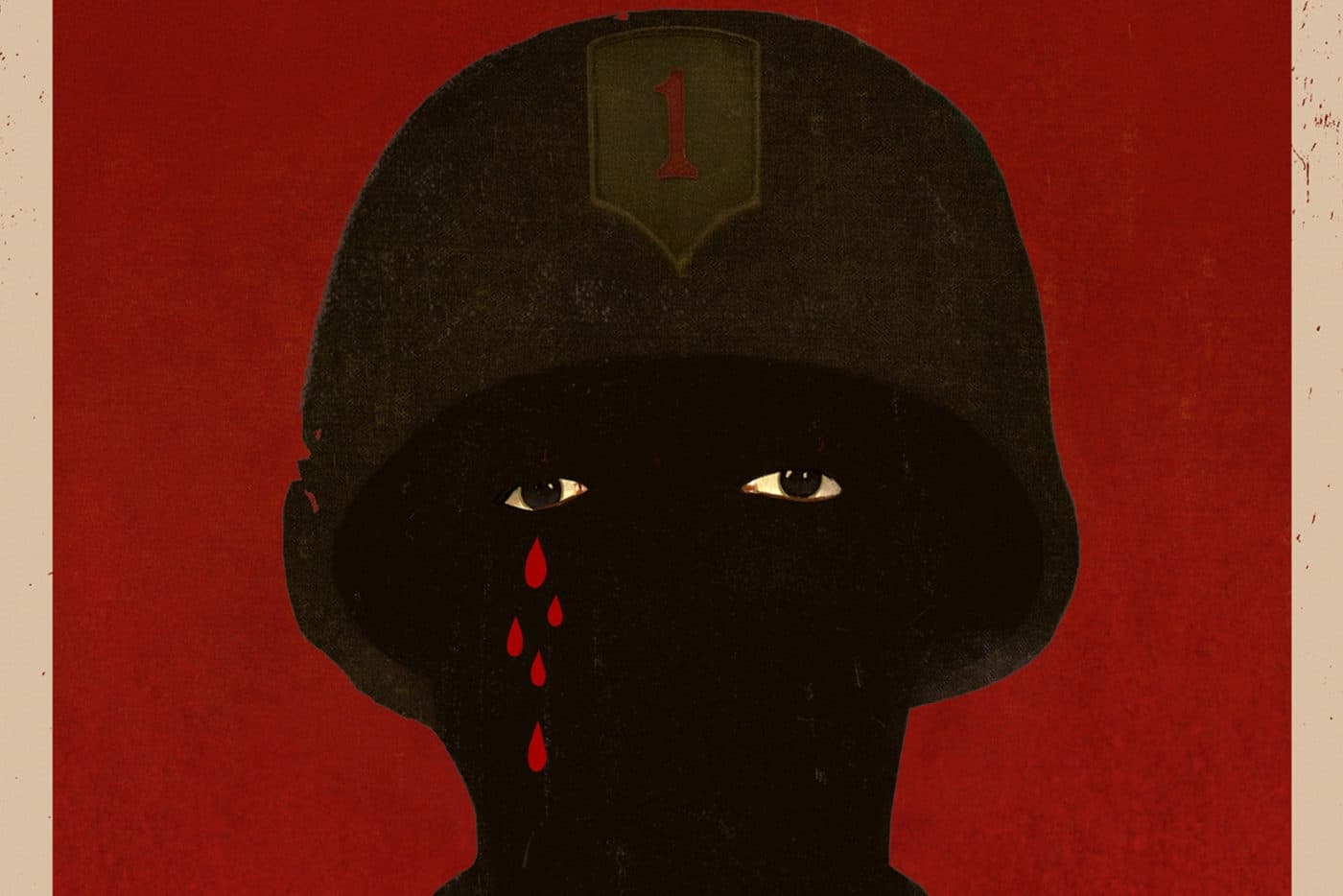

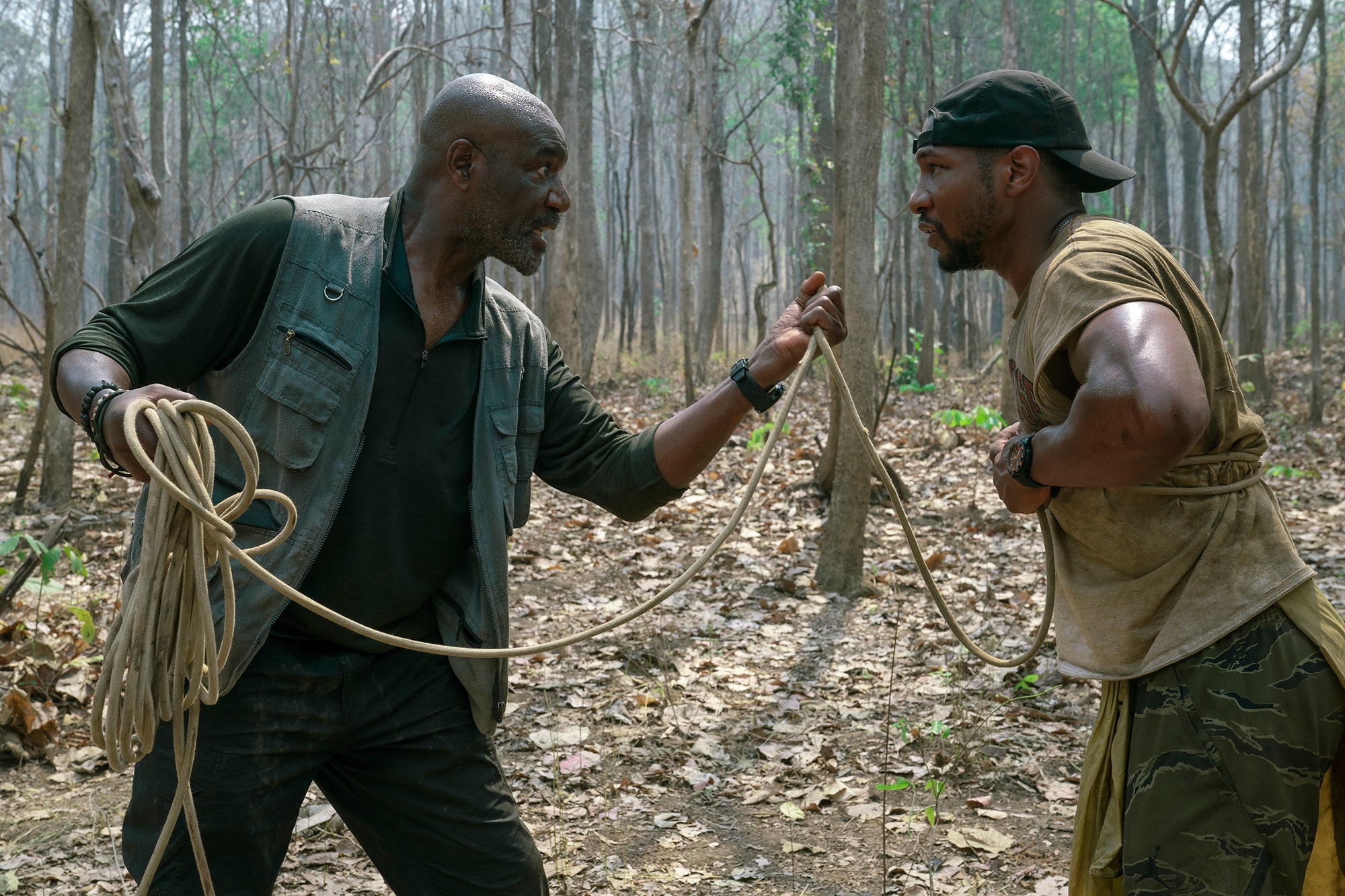
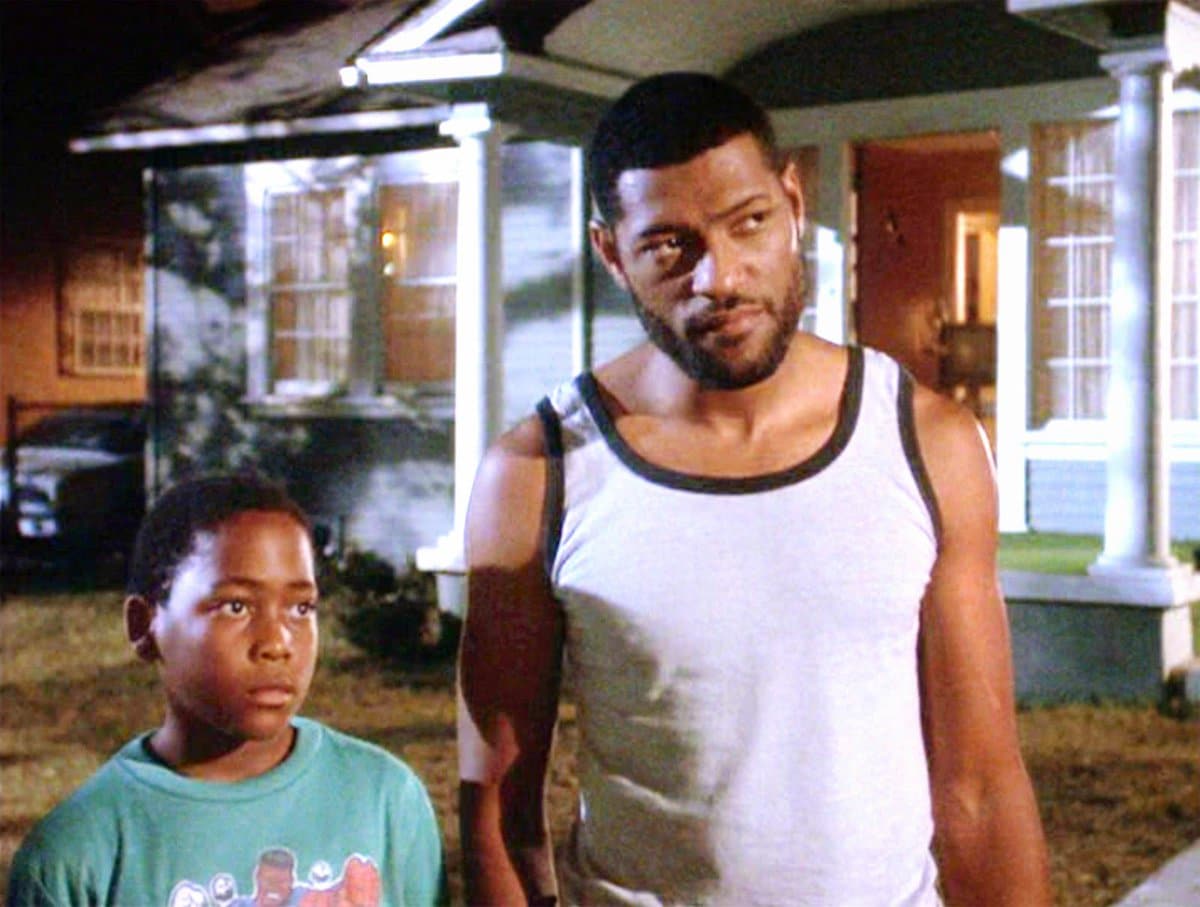
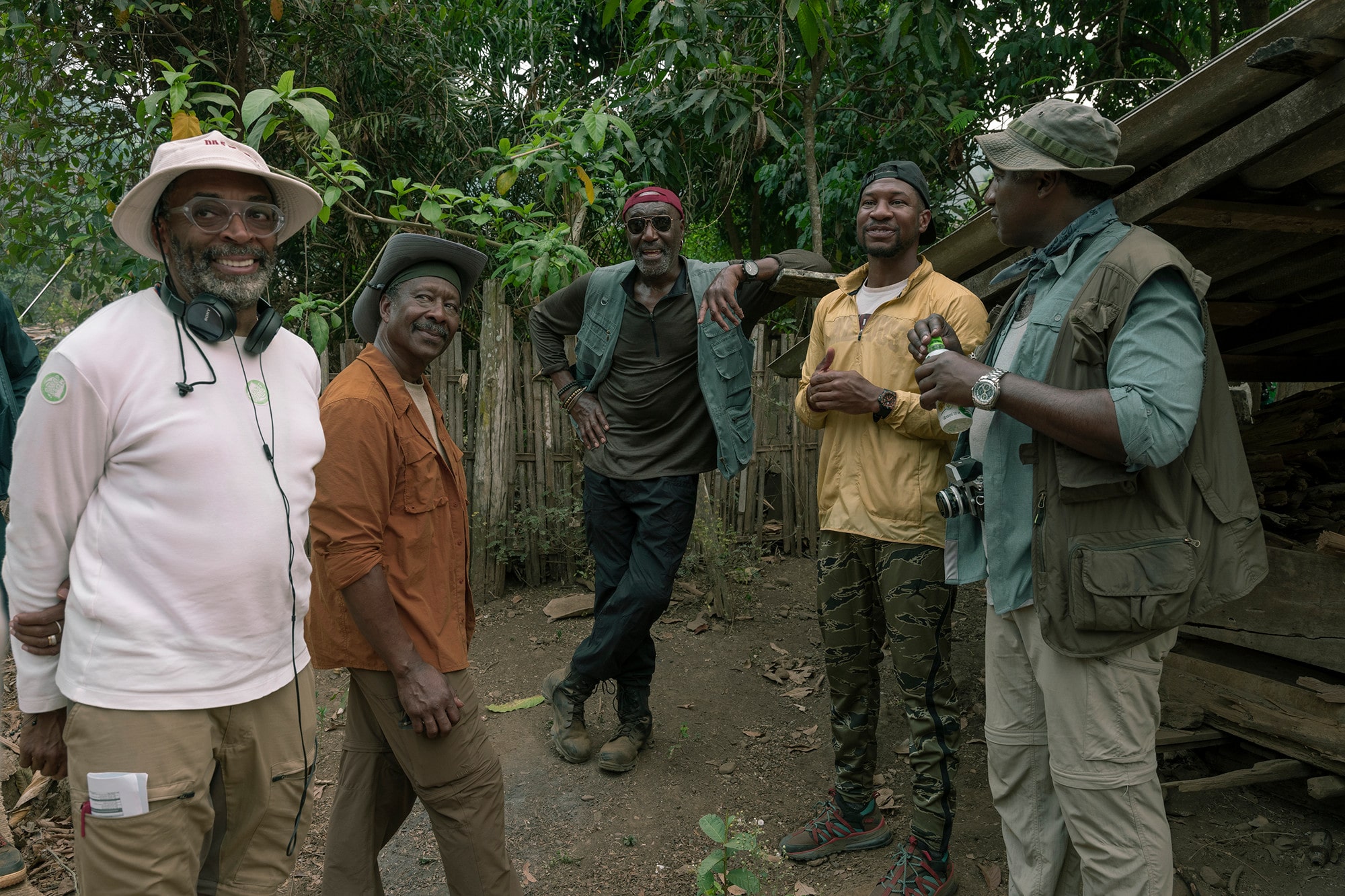
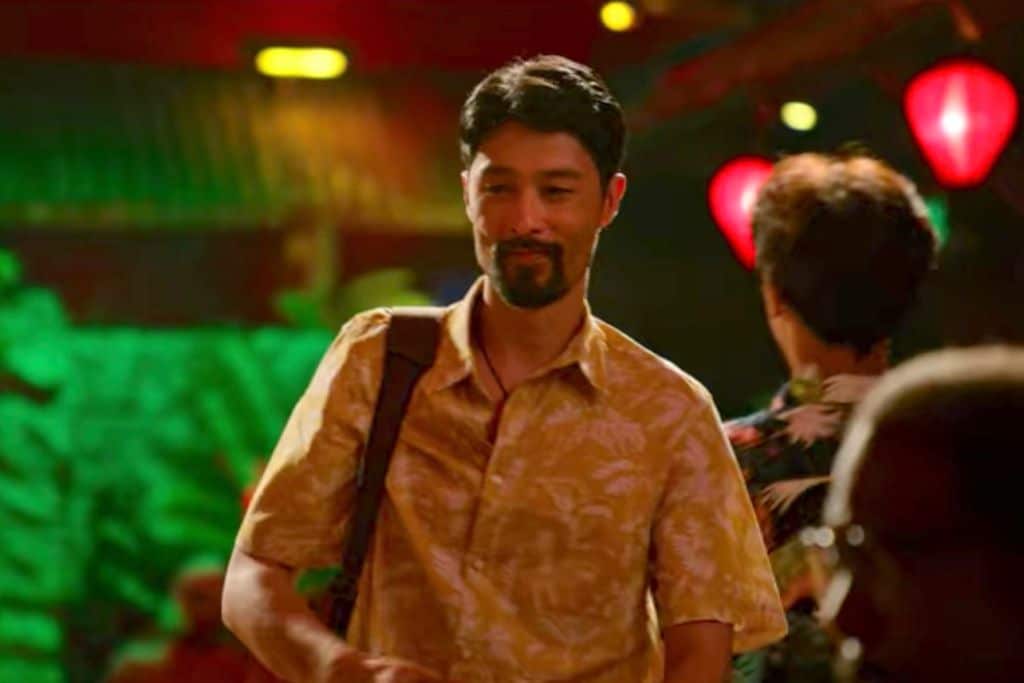
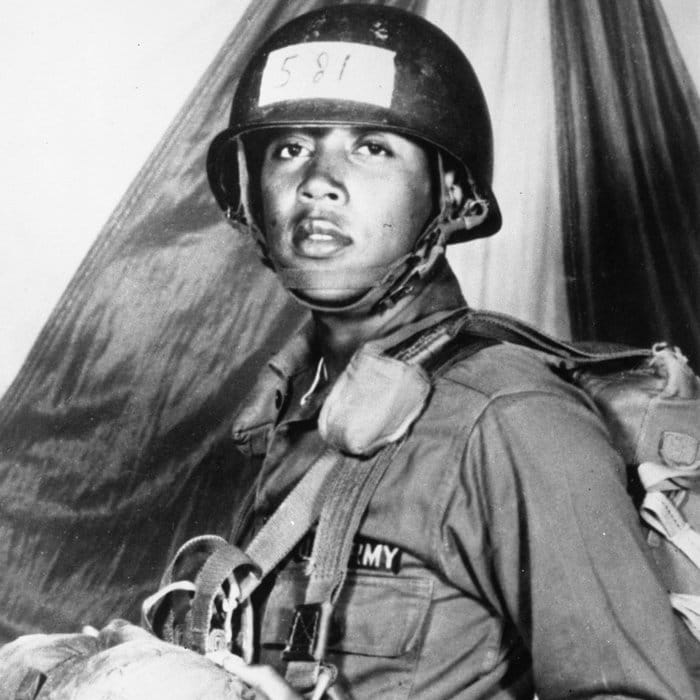
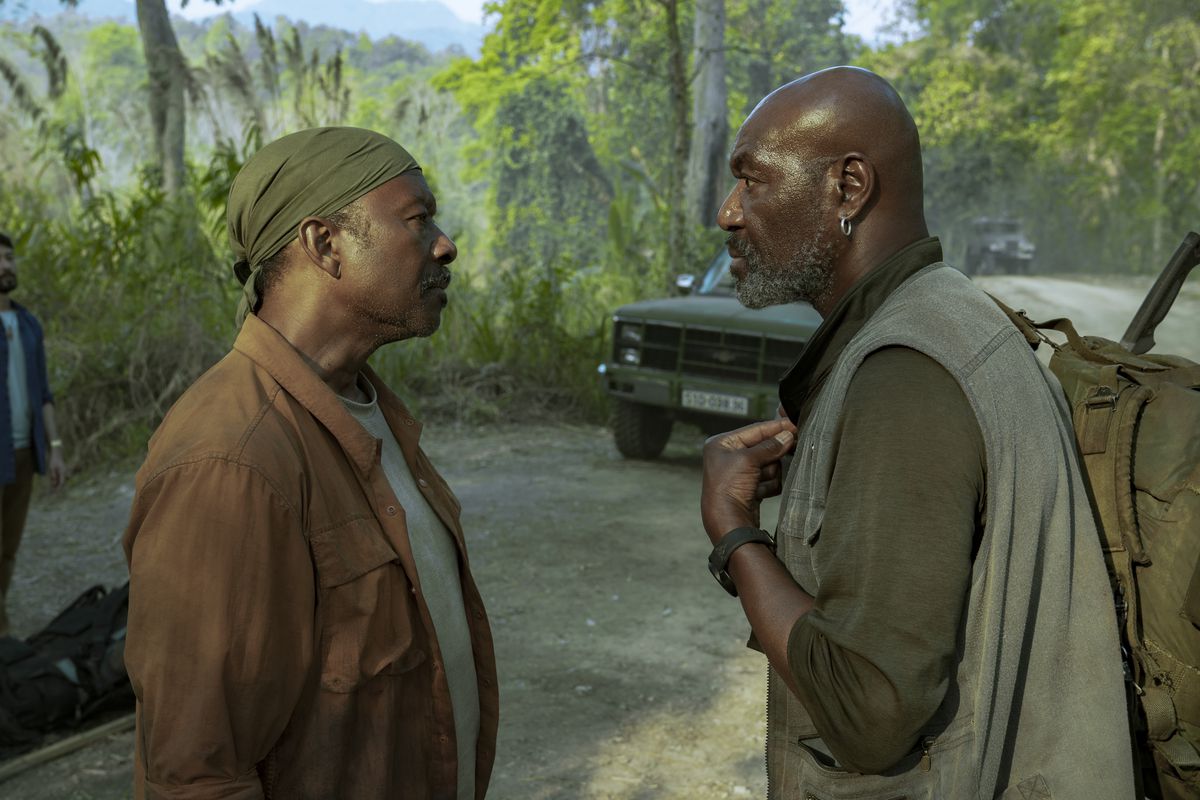
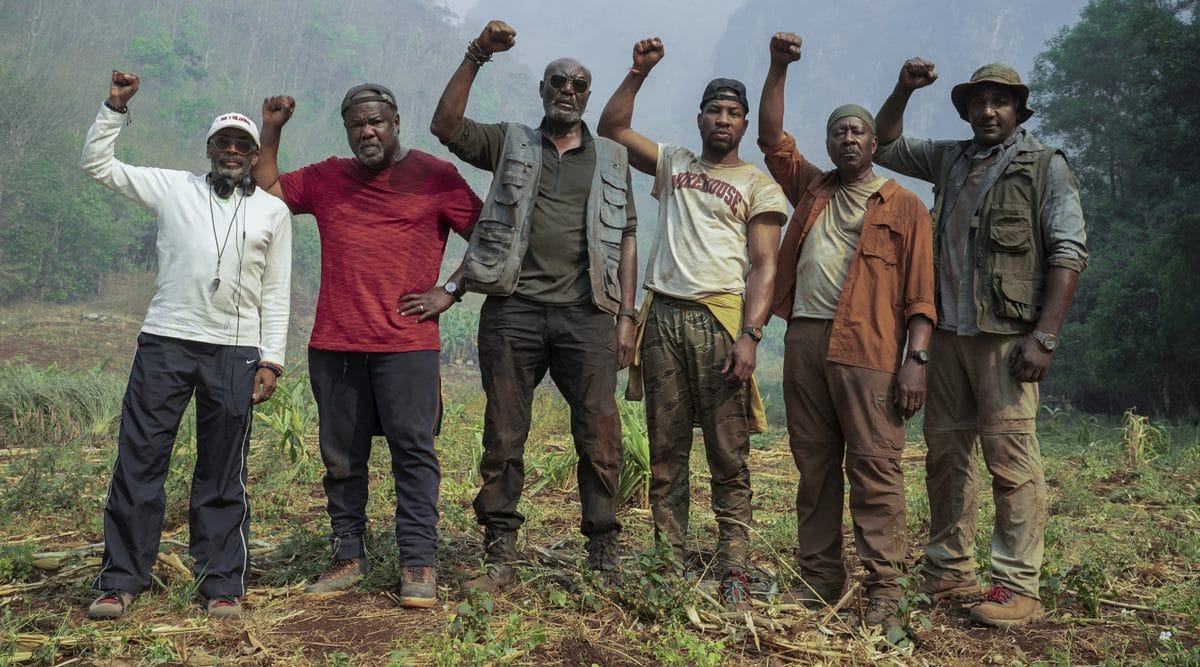



7 Comments on “‘Da 5 Bloods’ – A Special Spoiler Review (With Analysis)”